2017
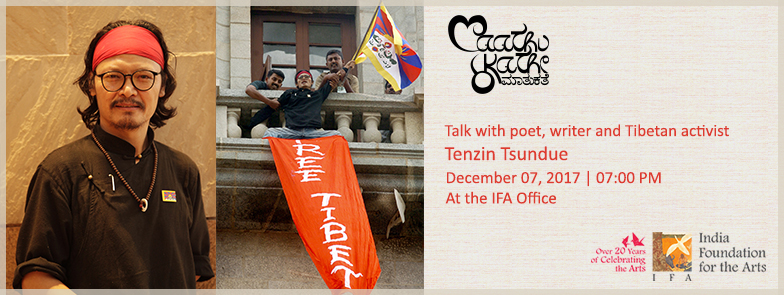
Poet, writer and Tibetan activist Tenzin Tsundue will talk about 'Writing and Resistance'—about why resistance is driven by the act of writing and how it fuels an intellectual inquiry. He will take us through his experience as a poet and activist in the Tibetan freedom struggle, and how this helped him understand and articulate the cause.
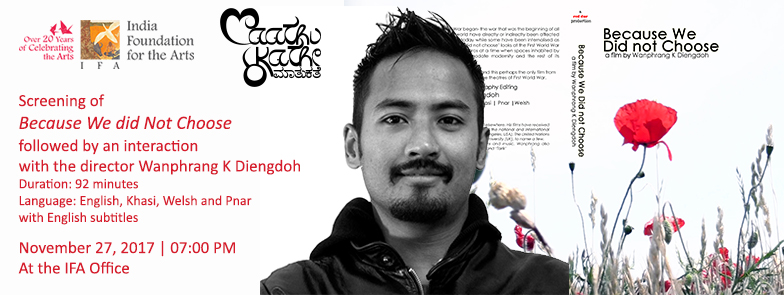
Because We Did not Choose by Wanphrang K Diengdoh is a meticulous documentation of the journey made by labourers from North East India to the war front. Shot over four years in Shillong and other parts of Meghalaya, Guwahati, Kolkata, Chennai, France, Wales and England, the film looks at the effect of the First World War and the implications of modernity on these indigenous communities
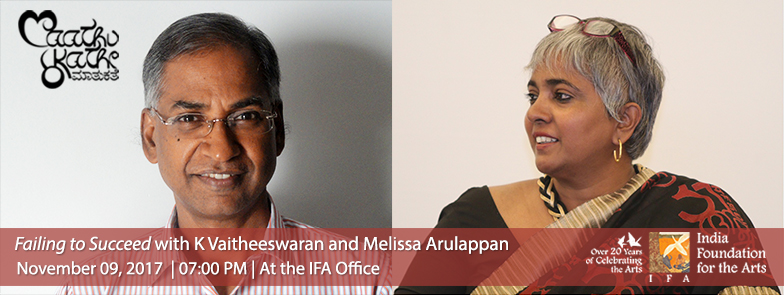
Ever Tried. Ever Failed. No matter. Try again. Fail again. Fail better."
- from Worstward Ho by Samuel Beckett
Many artists, writers and philosophers before and after Beckett have spoken of the virtues of failure, of its ability to be our best teachers, to show us like a mirror our true face. K Vaitheeswaran and Melissa Arulappan discuss various notions around failure in our everyday lives

Justin O'Connor, Professor of Communications and Cultural Economy at Monash University, Australia, will talk about cities, music, and ruins, moving from Manchester, UK of the 1970s to present day Shanghai, China!
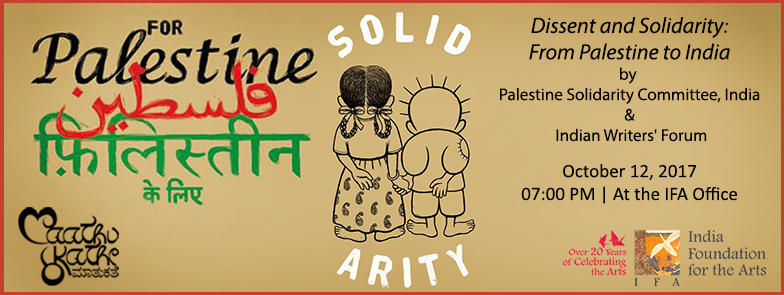
"I will remain in a sunrise/ Like a sun
Radiating warmth-resisting/ I will not leave
The shadows of my country" -
Dareen Tatour, I Will Not Leave My Country; Trans. Ghada Mourad
Maren Mantovani and Shiv Sundar will share experiences and modalities of resistance, looking at connections between India and Palestine. From Palestine to India, the spaces for dissent and resistance are being swiftly stifled. It is urgent to open-up a dialogue between progressive Indian and Palestinian voices, to build lasting and enriching solidarities between Palestine and India. It is perhaps the only way to fight this gloom.
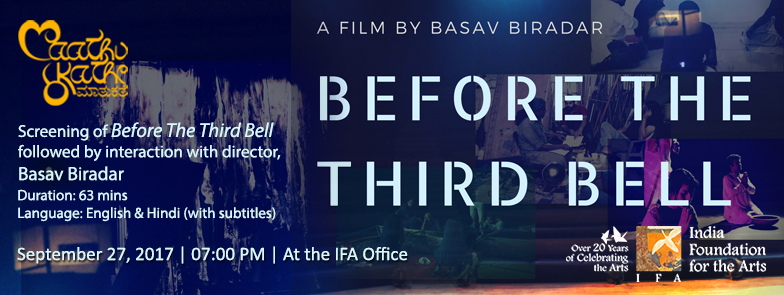
In the current 'digitally connected' world, what does professional theatre mean? In today's social, economic and political context, what does it take to create a collective voice in theatre? How does a theatre company approach collaborations and how do artists with different ideas and sensibilities come together to create a piece of theatre? A film on contemporary theatre making in India, Before The Third Bell by Basav Biradar, seeks to provide a peek into the world of theatre by documenting the creative processes of Muktidham - a play written and directed by Abhishek Majumdar.
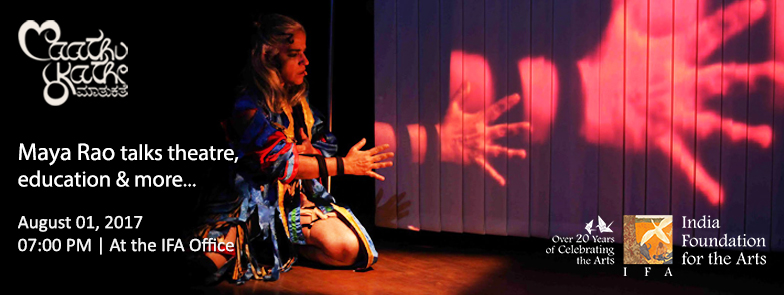
Renowned theatre artist Maya Krishna Rao talks about her journey with theatre, education and the relationship between the two. Maya will share her practices of theatre making, teaching and drama-in-education, and the ways in which they have impacted each other. For Maya theatre making has ranged from dance theatre to multi-media and comedy, often involving collaborators from the mediums of film and sound. Video clips from shows along with description of process, inspirations and the opening of new avenues will form the central theme of her talk.
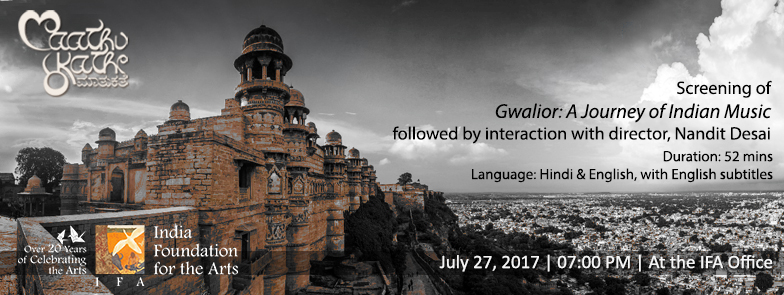
When did the Gwalior gharana come into existence? Who were the stalwarts who made it accessible to the people? Who were its patrons? What innovations did the gharana bring into the classical tradition? What makes it unique? A screening of Gwalior: A Journey of Indian Music, by Nandit Desai - a film on the Gwalior gharana or tradition of Hindustani classical music. The film captures nuances of the tradition through interviews, archival footage and of course, some hypnotising music!
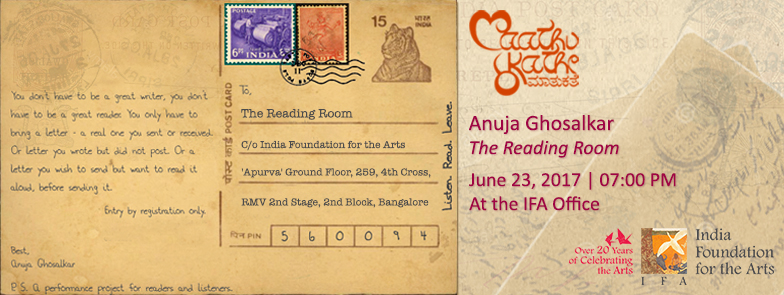
In the performance, The Reading Room, by theatre practitioner and writer, Anuja Ghosalkar, the audience reads letters, some curated and others from their personal collections.The curated correspondence of provocative, unknown, famous and strange letters cover diverse subjects from the emergency, communism, espionage, shipping and science, to a letter shared between a father and son, and another, from a war.
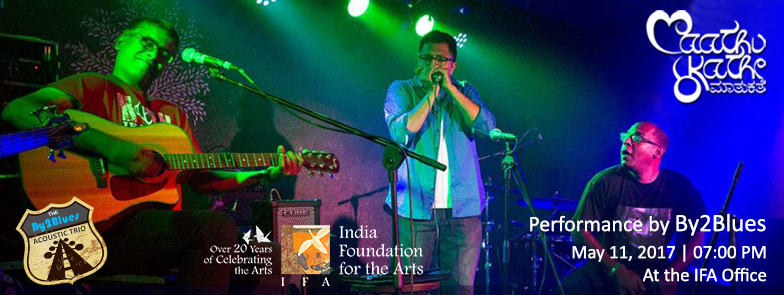
The classic blues acoustic trio - Ananth Menon, Vasudev Prabhu and Joe Anthony of By2Blues play classic blues and a bit of blues-rock in their very own, inimitable style. The band's unique sound is a blend of powerful vocals, rock-solid rhythm and honkin' harmonica, woven together into a rich tapestry based on the individual styles, inspirations and personalities of each of the members.
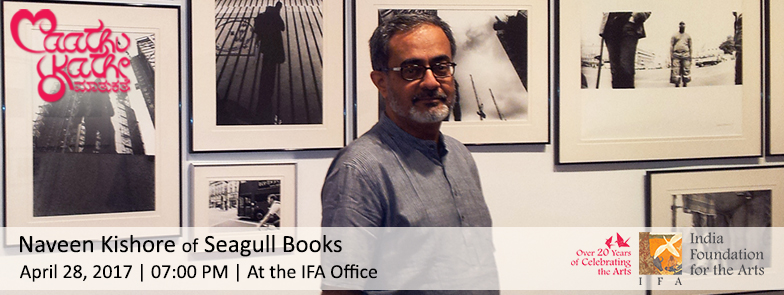
Publisher and writer Naveen Kishore shares vignettes from his writing, First into a murmur. Then into a song. Writing Resistance. He will also talk about his journey in the world of the arts in India, especially his association with Seagull Books and the Seagull Foundation in a discussion with Executive Director of IFA, Arundhati Ghosh. Naveen seeks to engage, converse and resist our complex present through his writing, Songs of Resistance in these Dark Times.
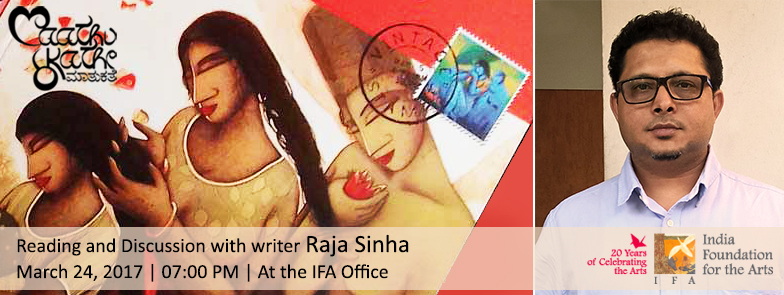
Writer and advertising filmmaker Raja Sinha reads from his short story collection Postcard Golpo, followed by an interaction with the Executive Director of IFA, Arundhati Ghosh. The short story, Sits Keen, which will be part of the reading, re-counts the story of Laatu, as he undertakes the process of admission to an English medium school in Lalgarh, a Maoist influenced area of Bengal.
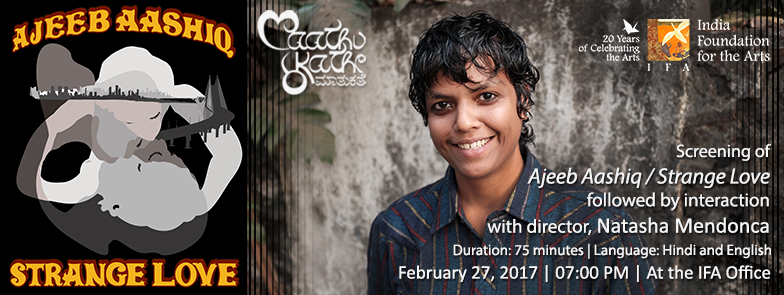
Screening of Ajeeb Aashiq/Strange Love by Natasha Mendonca, which chronicles shape shifting in a city that constantly changes. Khush and Suman’s lives intersect in a contemporary portrait of Mumbai. Unrequited love, betrayal, and friendship inform the course of their transformation and build a larger narrative of city hustle in a thriving megalopolis, known as the maximum city.
